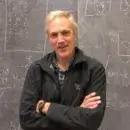
Stephen W. Pacala
Dr. Stephen W. Pacala is Director of the Princeton Environmental Institute and the Frederick D. Petrie Professor in Ecology and Evolutionary Biology at Princeton University. He also co-directs the Carbon Mitigation Initiative, an effort to develop solutions to the greenhouse warming problem, and is a founder and Chairman of the Board of Climate Central, a nonprofit media organization focusing on climate change. Pacala has researched a wide variety of ecological and mathematical topics. At Princeton, his work focuses on problems of global change with an emphasis on interactions among the biosphere, greenhouse gases and climate. Pacala is interested in the processes that govern ecological communities, the interplay between community and ecosystem-level processes, and the interactions between the global biosphere and climate. His approach is to develop, calibrate and test mathematical models that explain ecological structure and function. Currently he directs a group called the Carbon Modeling Consortium, which is working to understand all aspects of the global carbon cycle. The group is composed of ecologists, physical and biological oceanographers, and atmospheric scientists, and investigates issues ranging from the effects of global vegetation on climate, to the large-scale measurement of natural and anthropogenic greenhouse gas emissions. Pacala is now working most intensively on a new model of the terrestrial biosphere. His honors include the David Starr Jordan Prize, and the George Mercer and Robert MacArthur Awards of the Ecological Society of America, among others. He is a fellow of the American Association for the Advancement of Science, a member of the National Academy of Sciences, and an honorary member of the British Ecological Society, in addition to his American Academy of Arts and Sciences membership. His numerous publications appear in prominent journals including Global Change Biology, PNAS, and Science.